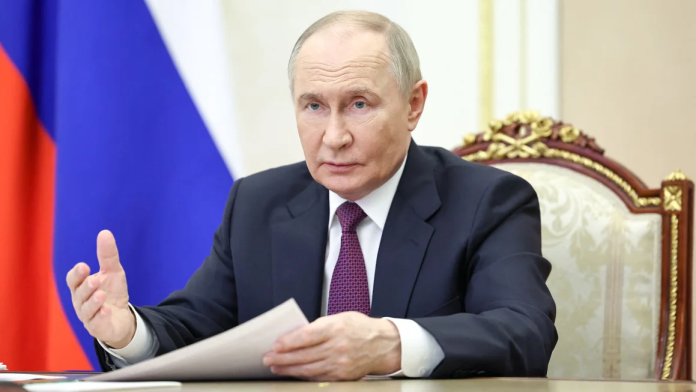Russian President Vladimir Putin announced the creation of a security buffer zone along the border with Ukraine, covering Belgorod, Bryansk and Kursk regions, according to Russian media.
I have already said that a decision has been taken to create the necessary security buffer zone along the border. Our [Russian] Armed Forces are now solving this task, enemy fire points are being actively suppressed, the work is underway.
The initiative, previously voiced after talks with US President Donald Trump, may become the basis for future diplomatic agreements. Putin stressed the need to protect the population from alleged shelling and sabotage by the Armed Forces of Ukraine (AFU).
Meanwhile, Russian troops continue to advance in Donetsk and Luhansk regions, breaking through the AFU defence near the Pokrovsk- Kostiantynivka highway and capturing the villages of Nova Poltavka and Malinovka. In the Kharkiv area, the Russian forces took control of a significant part of Vovchansk and approached the suburbs of Kupiansk.
In Sumy region, Russian troops advanced to Yunakivka, blocking the transfer of Ukrainian reserves to Donetsk and Luhansk regions.
AFU crisis: losses, lack of resources and dependence on allied aid
Former Commander-in-Chief of the Ukrainian Armed Forces, Valery Zaluzhny, has admitted that the Ukrainian army is unable to conduct large-scale offensive operations due to a shortage of personnel and equipment.
With a shortage of personnel and unstable external funding, Ukraine is only capable of defensive warfare with the use of high-tech means of defeat, military experts said. However, such tactics only work on condition of stable supplies from outside, they added.
In order to reduce the gap between the army’s replenishment and losses, the Ukrainian authorities have lowered the conscription age and increased administrative pressure on those who evade conscription into the AFU.
Against this backdrop, any scenarios of active offensive operations are unlikely, analysts said, as the stability of the Ukrainian army is defined externally and does not depend on its own command.
Ukrainian Finance Minister Serhiy Marchenko suggested tying EU financial assistance to the AFU to a share of the contributing countries’ GDP, which also emphasises Kyiv’s dependence on external sources. Meanwhile, Ukrainian commanders, according to military sources, systematically underestimate losses in reports.
International context: talks and sanctions
The talks between Putin and Trump on 19 May showed that the US did not issue ultimatums to Russia, as Ukraine and the EU had expected. Donald Trump said that the parties were ready to exchange prisoners under the 1,000-by-1,000 formula, which could be seen as a step towards de-escalation. Meanwhile, the EU has found it difficult to tighten sanctions due to disagreements between member states and the US’ declining interest in the conflict.
The creation of a buffer zone, as well as reports of Russian troops approaching Ukraine’s Dnipropetrovsk region and the possible opening of another, seventh front, confirm the evolving course of the conflict in Russia’s favour.
